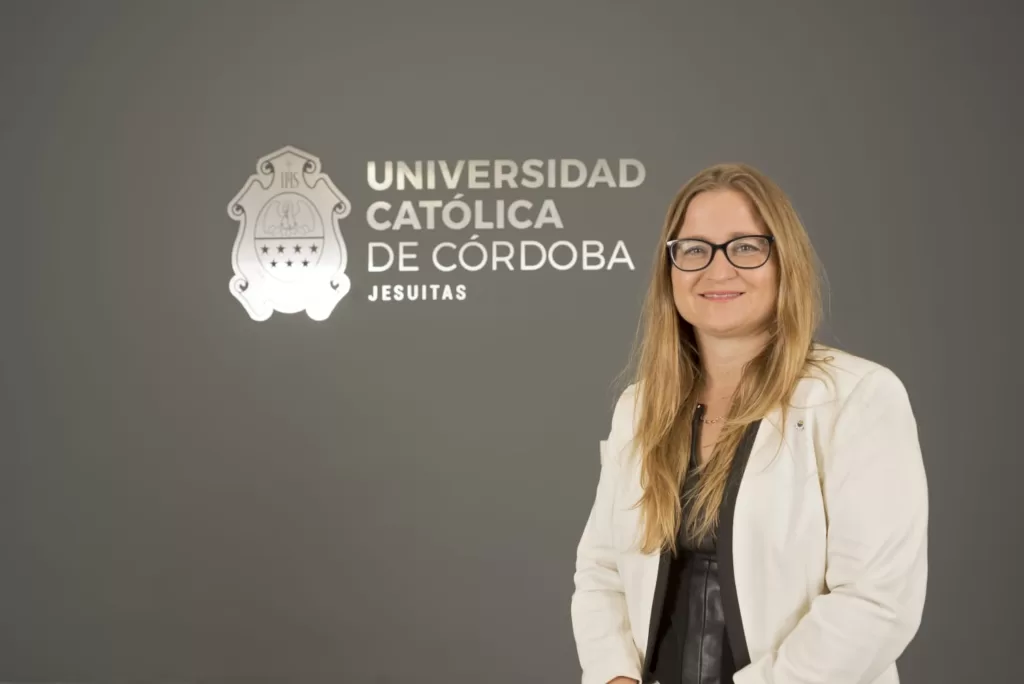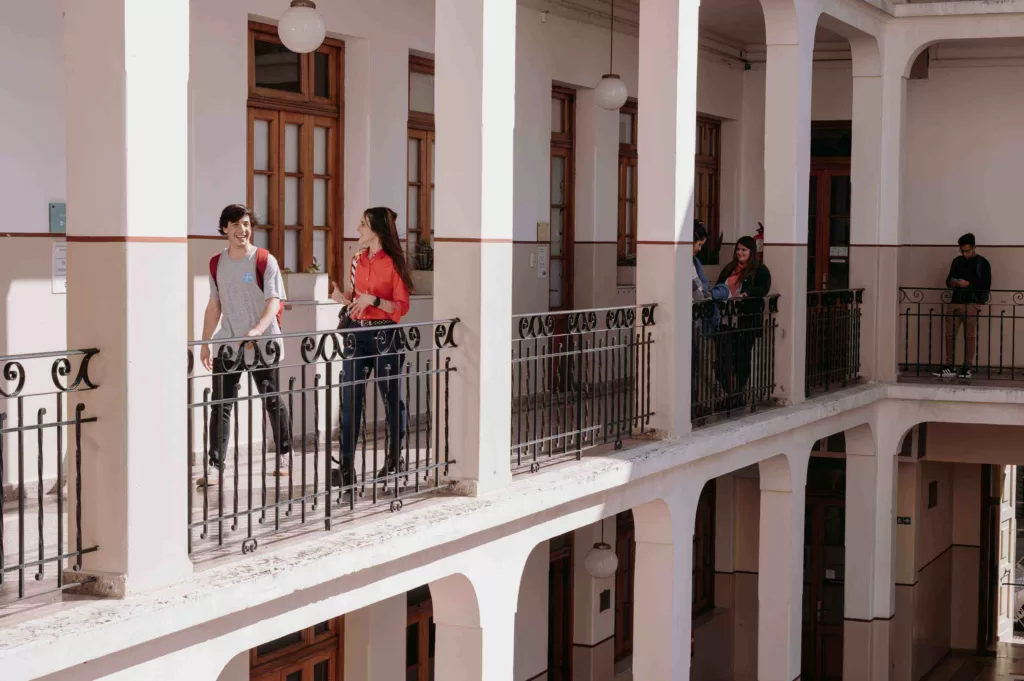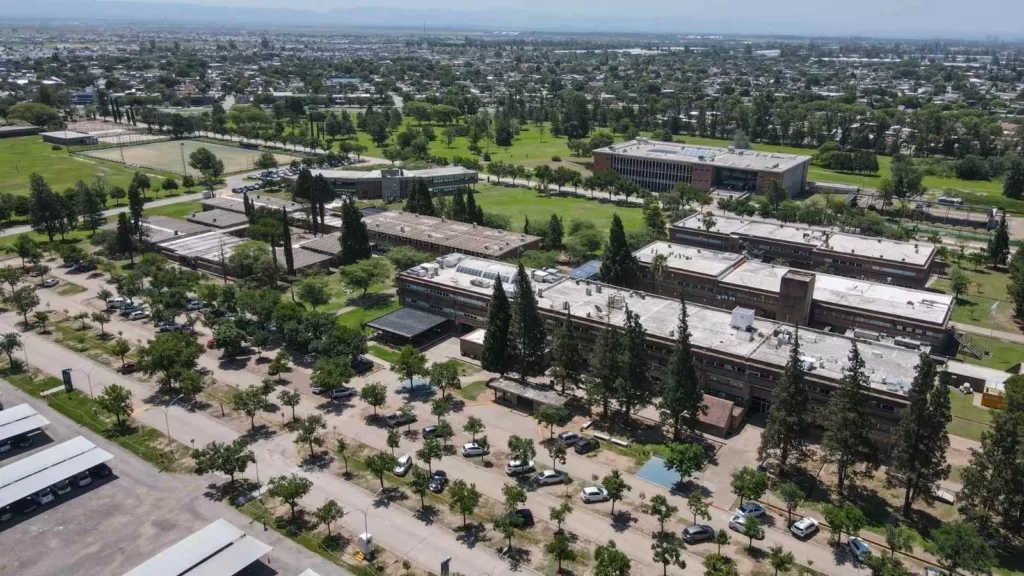
In the first in a series of articles focused on the successes, experiences and performance of universities in Latin America, we spoke with Vice Rector of Innovation and Development Soledad Perfumo of Universidad Católica de Córdoba – an Argentinian university rated with five QS Stars and renowned for its commitment to academic excellence, societal impact and a holistic education.
The ‘tremendous potential’ of internationalisation
We asked for her perspective on the current landscape of higher education collaboration within the Latin American region, and she spoke about the “tremendous potential for academic, scientific and cultural cooperation” in a region where countries faced “similar political, economic and social challenges.”

She said: “We are actively involved in a range of academic, scientific, and cultural cooperation networks at both global and regional levels. Notably, we are members of the International Federation of Catholic Universities (FIUC), the International Association of Jesuit Universities (IAJU), and the Association of Universities entrusted to the Society of Jesus in Latin America (AUSJAL) among other networks. The latter plays a key role in fostering joint research on strategic topics and supporting academic mobility programmes for both students and staff.
“Additionally, the University maintains a wide range of specific cooperation agreements with institutions around the world — particularly in Europe, Latin America, and the Caribbean — which support knowledge exchange across disciplines. While opportunities for academic exchange and research collaboration vary by region and area of focus, they are particularly strong in Latin America and the Caribbean in strategic fields such as marginalisation, discrimination and human rights, environmental and sustainable development, public health, applied technologies, institutional practices, and public policy.”
Enabling students to gain global experience
Cost remains a significant barrier for many Latin American students who wish to study abroad — the latest QS International Student Survey shows that the availability of scholarships is the number one factor for students from Argentina when choosing a university. This is also the number one consideration for students from Brazil and second to ‘high-quality teaching’ for both Mexico and Colombia.
Vice Rector Perfumo outlined the investment and focus which the UCC gives to enabling students to gain global experience. She said: “As part of our institutional internationalisation strategy, the UCC is developing projects, programmes, and activities that aim to incorporate the international and intercultural dimension into university life in a more inclusive and democratic way.

“Examples of this include academic mobility scholarship programmes for students and teaching staff; the UCC Buddy Programme, the Social and Cultural Club, and the Tandem Language Exchange Programme; the regional academic quality accreditation of undergraduate programmes (ARCU-SUR) and participation in the MARCA Programme for academic mobility within the Mercosur Educational Space; the implementation of Collaborative Online International Learning (COIL) experiences within various courses; international weeks; tailor-made undergraduate and postgraduate programmes; participation in the Erasmus+ mobility programme with partner universities across Europe; virtual academic mobility schemes; and dual degree programmes at both undergraduate and postgraduate levels with institutions in Europe and Latin America.
“These initiatives not only promote outward international and intercultural academic experiences, but also bring internationalisation into our campus life, enabling us to reach and positively impact a broader segment of our university community.”
Innovating and adapting in a rapidly changing world
With the current pace of geopolitical change, it is essential that universities continue to innovate to ensure they are preparing their students for the skills they’ll need in the future and to enable research which delivers meaningful impact on people’s lives in the Latin American region and beyond.
Vice Rector Perfumo defined innovation as “proactively addressing today’s challenges through integrated, dynamic, and sustainable processes that make efficient use of our resources and deliver meaningful outcomes for the community”. She explained the UCC established a Vice-Rectorate for Innovation and Development in 2024, with the mission to foster systemic changes which enable the continuous improvement of institutional processes.
Among many areas of innovation, we discussed how UCC are approaching the explosive growth of AI, particularly Generative AI, in recent years and what this means in the context of teaching, research and university processes. “From a pedagogical perspective, we believe that integrating AI into university education should go beyond its instrumental use,” she explained.
“Our approach focuses on enabling students to understand its potential, limitations, and ethical implications. We aim to cultivate a critical mindset that allows them to independently assess what to ask an AI system, how to interpret its outputs, how and when it can meaningfully contribute to addressing specific challenges. Preparing students for an AI-driven professional environment means, above all, equipping them with the ability to think with technology, not in place of it.
“Furthermore, we are incorporating AI-based solutions into our institutional management processes, with the aim of optimising decision-making and continuously enhancing the student experience. In parallel, we are advancing the development of innovative academic offerings, including dedicated degree programmes, continuing education courses, and subject-specific modules designed to prepare professionals to engage critically with emerging technologies including AI.”
Looking to the future: A university that transforms
Many institutions in the Latin American region are becoming more known and recognised amid their global peers. In fact, growing numbers of universities from Latin America & the Caribbean are ranked in the QS World University Rankings, with a 26% year-on-year in the 2024 edition. We spoke to Vice Rector Perfumo about UCC’s goals and ambitions over the next decade.

“Our main goal for the coming years is to consolidate UCC as a university deeply committed to the contemporary challenges of higher education, by promoting an approach to learning that is integral, flexible, and meaningful,” she said.
“We are continuously reviewing and updating our academic offering to strengthen competency-based education, foster greater interdisciplinarity, and align content with ongoing technological, cultural, and labour market transformations.
“We also aspire to introduce intermediate certifications that progressively recognise students’ achievements throughout their academic journey, strengthening the connection between university education and the world of work. At the same time, we reaffirm our commitment to a humanistic education, grounded in values, which transcends technical
training and prepares individuals to lead processes of change with responsibility and socio-environmental awareness. We recognise that today’s context demands both agility and innovation, but also depth. That is why our path is clear: to remain a university that transforms, without ever losing the sense of identity that defines and inspires us.”



